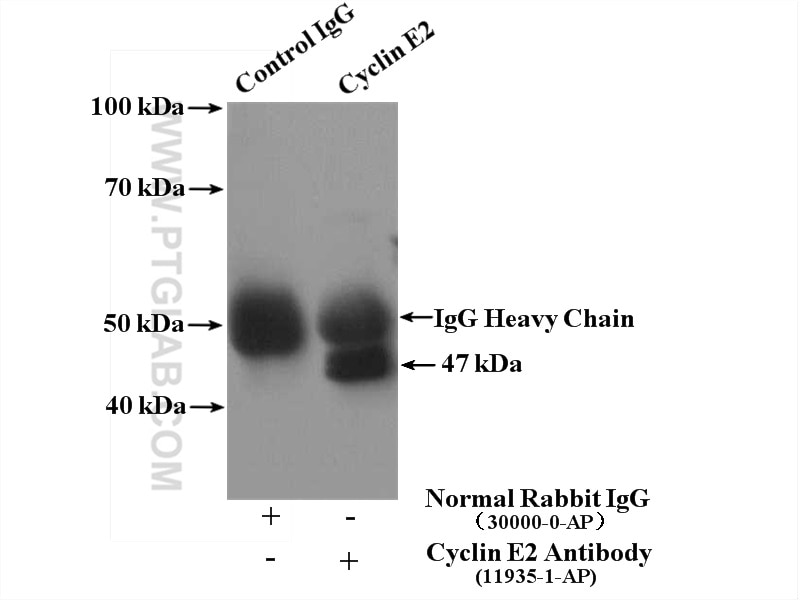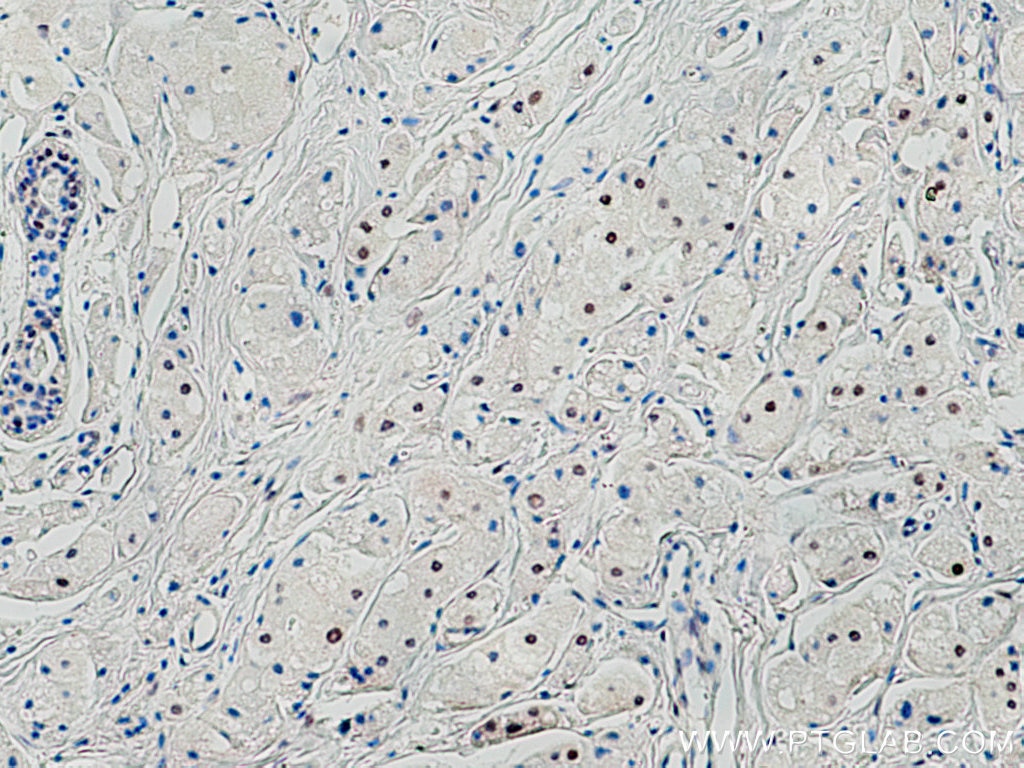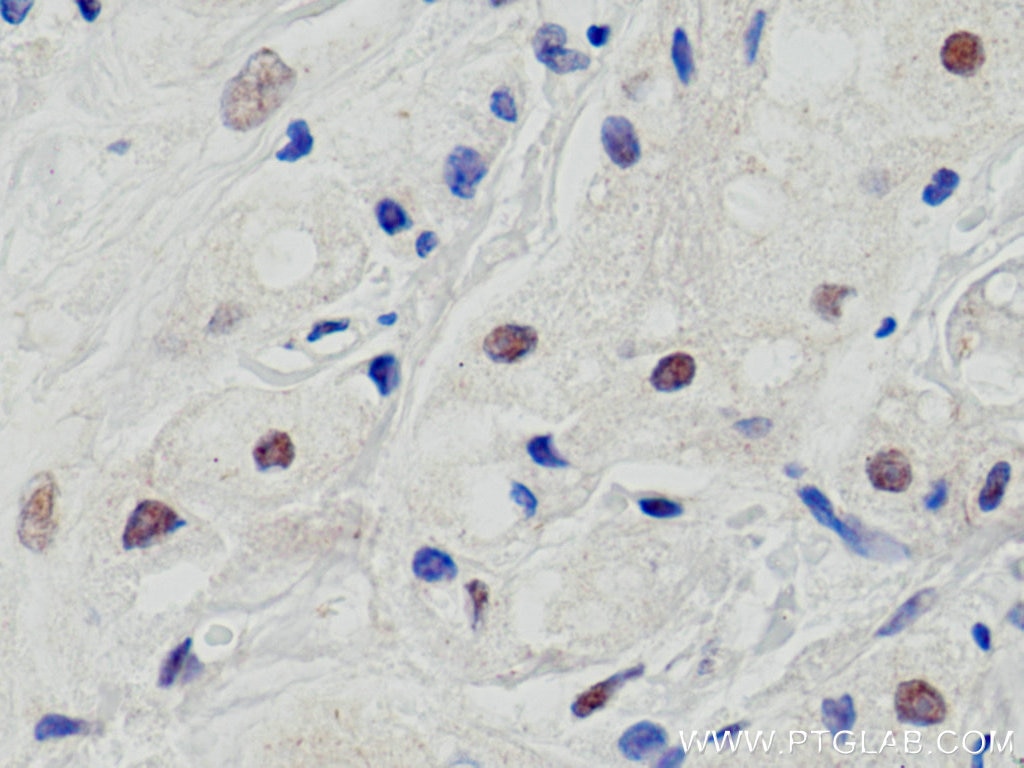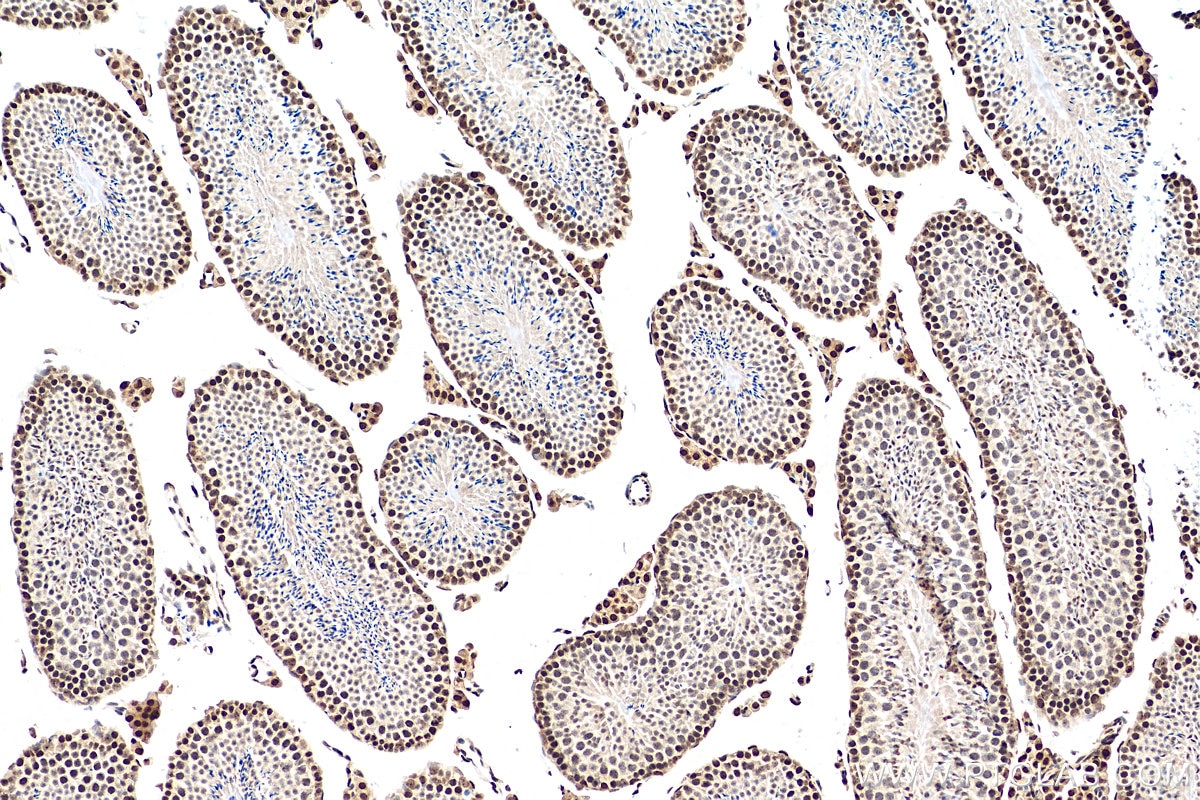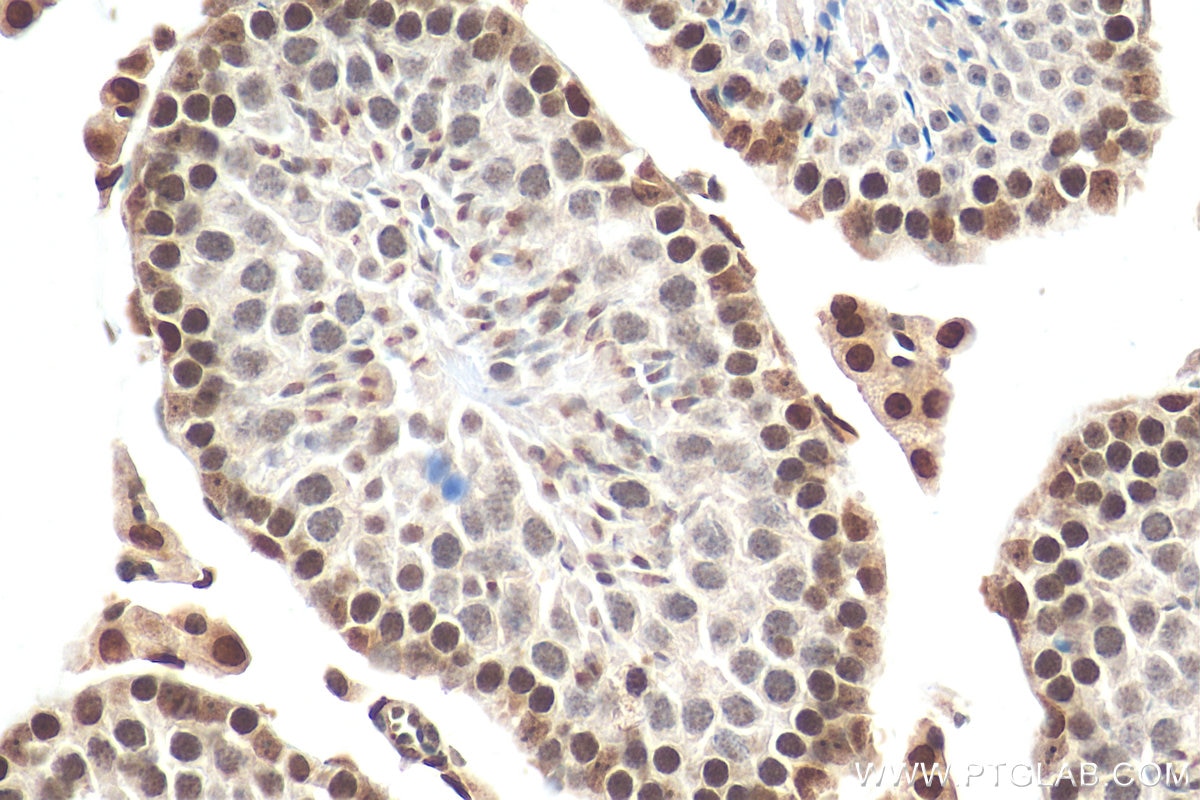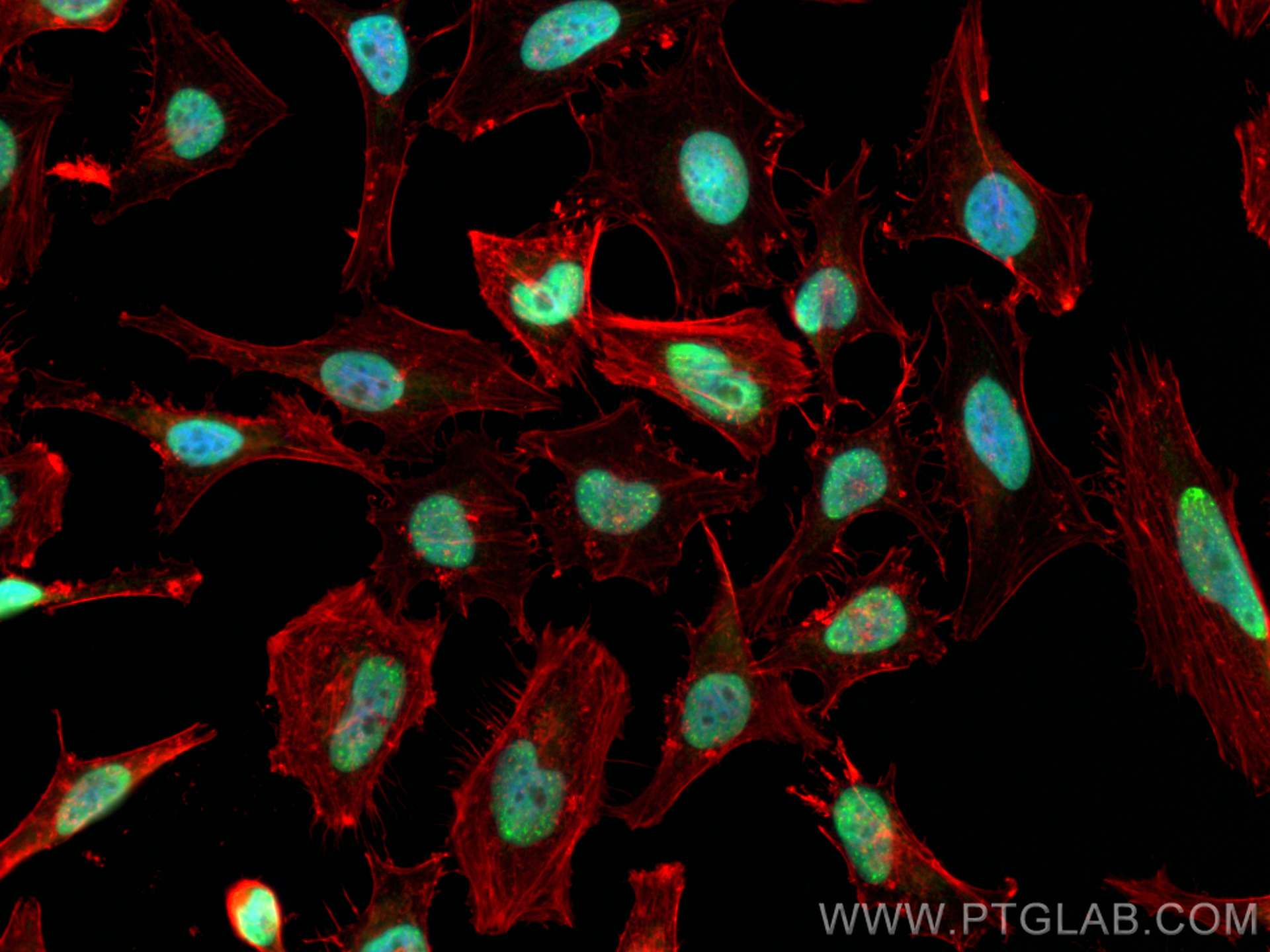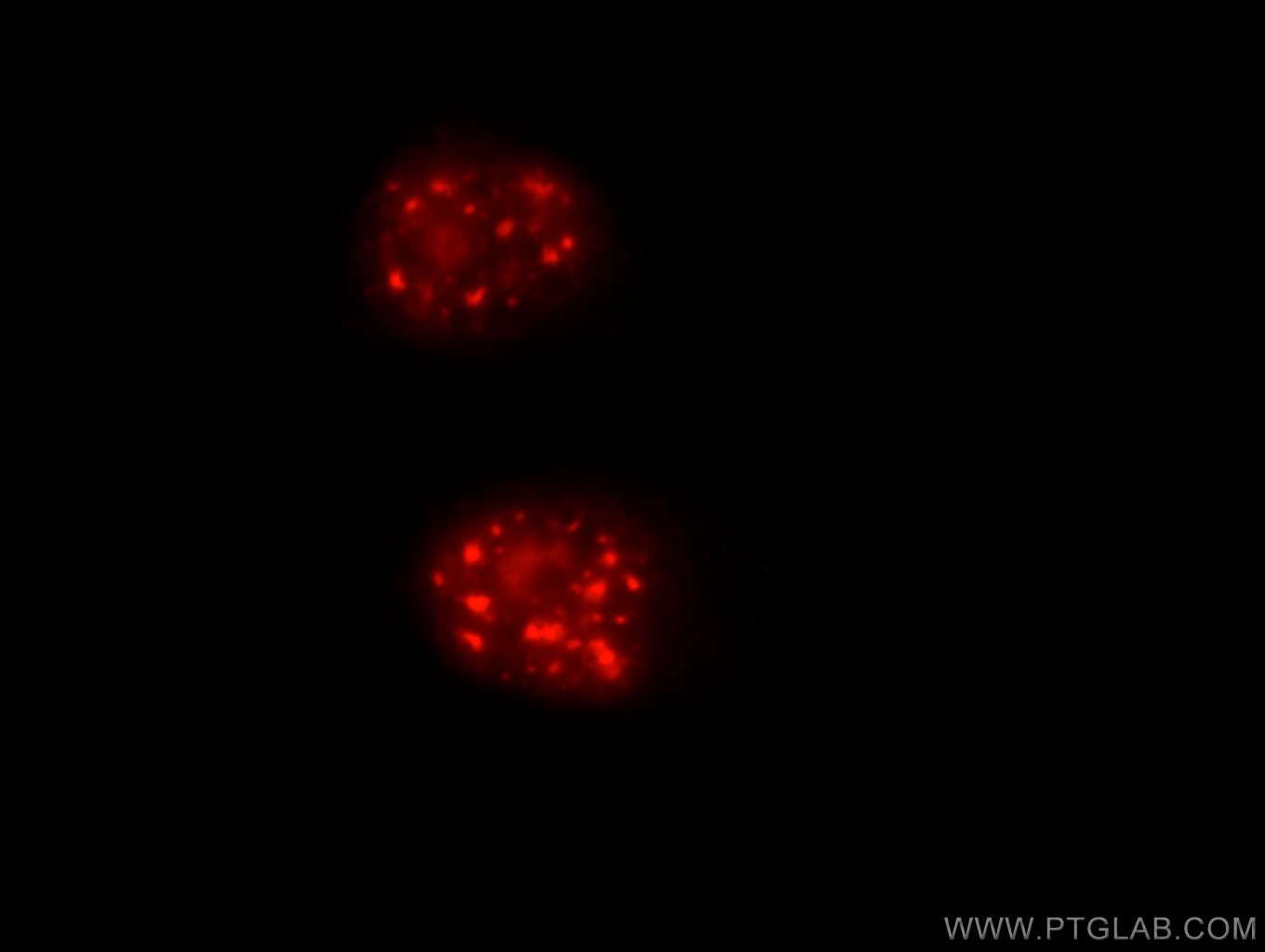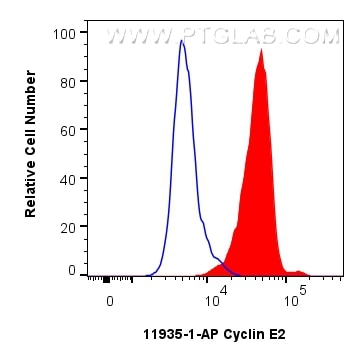Anticorps Polyclonal de lapin anti-Cyclin E2
Cyclin E2 Polyclonal Antibody for IHC, IF/ICC, FC (Intra), IP, ELISA
Hôte / Isotype
Lapin / IgG
Réactivité testée
Humain, souris et plus (1)
Applications
WB, IHC, IF/ICC, FC (Intra), IP, ELISA
Conjugaison
Non conjugué
N° de cat : 11935-1-AP
Synonymes
Galerie de données de validation
Applications testées
| Résultats positifs en IP | cellules Jurkat |
| Résultats positifs en IHC | tissu de cancer du sein humain, tissu testiculaire de souris il est suggéré de démasquer l'antigène avec un tampon de TE buffer pH 9.0; (*) À défaut, 'le démasquage de l'antigène peut être 'effectué avec un tampon citrate pH 6,0. |
| Résultats positifs en IF/ICC | cellules HeLa, |
| Résultats positifs en FC (Intra) | cellules HeLa, |
Dilution recommandée
| Application | Dilution |
|---|---|
| Immunoprécipitation (IP) | IP : 0.5-4.0 ug for 1.0-3.0 mg of total protein lysate |
| Immunohistochimie (IHC) | IHC : 1:400-1:1600 |
| Immunofluorescence (IF)/ICC | IF/ICC : 1:200-1:800 |
| Flow Cytometry (FC) (INTRA) | FC (INTRA) : 0.25 ug per 10^6 cells in a 100 µl suspension |
| It is recommended that this reagent should be titrated in each testing system to obtain optimal results. | |
| Sample-dependent, check data in validation data gallery | |
Applications publiées
| WB | See 56 publications below |
| IHC | See 4 publications below |
| IF | See 1 publications below |
Informations sur le produit
11935-1-AP cible Cyclin E2 dans les applications de WB, IHC, IF/ICC, FC (Intra), IP, ELISA et montre une réactivité avec des échantillons Humain, souris
| Réactivité | Humain, souris |
| Réactivité citée | rat, Humain, souris |
| Hôte / Isotype | Lapin / IgG |
| Clonalité | Polyclonal |
| Type | Anticorps |
| Immunogène | Cyclin E2 Protéine recombinante Ag2532 |
| Nom complet | cyclin E2 |
| Masse moléculaire calculée | 374 aa, 44 kDa |
| Poids moléculaire observé | 44 kDa |
| Numéro d’acquisition GenBank | BC020729 |
| Symbole du gène | CCNE2 |
| Identification du gène (NCBI) | 9134 |
| Conjugaison | Non conjugué |
| Forme | Liquide |
| Méthode de purification | Purification par affinité contre l'antigène |
| Tampon de stockage | PBS with 0.02% sodium azide and 50% glycerol |
| Conditions de stockage | Stocker à -20°C. Stable pendant un an après l'expédition. L'aliquotage n'est pas nécessaire pour le stockage à -20oC Les 20ul contiennent 0,1% de BSA. |
Informations générales
Cyclin E2 (CCNE2) belongs to the highly conserved cyclin family, whose members are characterized by a dramatic periodicity in protein abundance throughout the cell cycle. Cyclins function as regulators of cyclindependent kinases (CDKs). Different cyclins exhibit distinct expression and degradation patterns which contribute to the temporal coordination of cell cycle events. CCNE2 forms a complex with and functions as a regulatory subunit of CDK2 and has been shown to specifically interact with CIP/KIP family of CDK inhibitors. CCNE2 plays a role in cell cycle G1/S transition and its expression peaks at the G1-S phase. Whereas cyclin E1 is expressed in most proliferating normal and tumor cells, cyclin E2 levels are low or undetectable in nontransformed cells, and are elevated in tumor-derived cells.
Protocole
| Product Specific Protocols | |
|---|---|
| IHC protocol for Cyclin E2 antibody 11935-1-AP | Download protocol |
| IF protocol for Cyclin E2 antibody 11935-1-AP | Download protocol |
| IP protocol for Cyclin E2 antibody 11935-1-AP | Download protocol |
| Standard Protocols | |
|---|---|
| Click here to view our Standard Protocols |
Publications
| Species | Application | Title |
|---|---|---|
Mol Cancer LncRNA TROJAN promotes proliferation and resistance to CDK4/6 inhibitor via CDK2 transcriptional activation in ER+ breast cancer. | ||
Theranostics Polycomb repressive complex 1 modulates granulosa cell proliferation in early folliculogenesis to support female reproduction | ||
Cell Commun Signal Decursin induces FLT3-ITD acute myeloid leukemia cell apoptosis by increasing the expression of the ubiquitin-conjugase UBE2L6 | ||
Mol Ther Nucleic Acids miRNA in food simultaneously controls animal viral disease and human tumorigenesis. |
Avis
The reviews below have been submitted by verified Proteintech customers who received an incentive for providing their feedback.
FH Juri (Verified Customer) (12-22-2023) | Worked ok with immunocytochemistry
|
